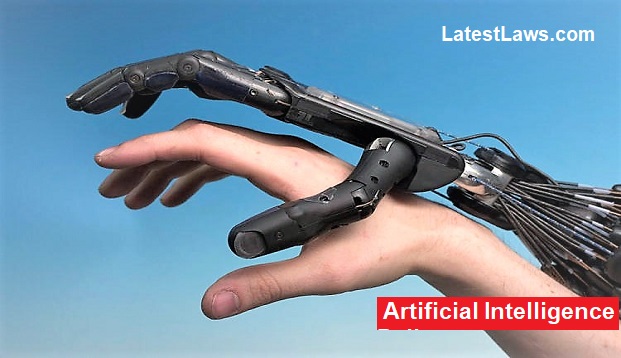April 20,2018:
The Indian legal sector has been one of the first sectors to adopt Artificial Intelligence, with some corporate legal firms using it in some form since 2005.
Even as judiciary takes baby steps to digitise court work, lawyers across the country are using softwares like 'Manupatra', ‘Casemine’, 'SCC' for basic research, the sort of work which otherwise would have been handled by an entry-level legal associate.
Huzefa Tavawalla, who heads International Commercial Law Practice at Nishith Desai Associates, allays the fears that jobs are at stake.
Tavawalla added that,“That can never happen because one of the things that a machine lacks is a conscience. This is one of the biggest challenges of AI”, firm was among the first to develop an in-house AI model.
Arup Roy, VP Research at Gartner, defines artificial intelligence as a programming technique which has its own language to break in business rules and knowledge into a software format so that a mathematical model, or algorithm, is derived to ingest data to output the desired result.
Tavawalla further added that,"After this initial stage, AI would start learning on its own. That’s the level of intelligence which is still lacking. If the machine keeps learning over a period of year or so, it can probably go and identify the downfalls in matters and will make you aware how to go about it”.
But the developers and even users don’t think Indian judiciary will be receptive to this new technology.
Experts stated that apart from a handful of judges, not many are tech savvy and might not be open to the idea of complete digitisation though it will help in speedy disposal of pending cases.
Tavawalla says to start with all the paper filing can end. “In a pen drive I can have 10,000 pages. Intelligence is the next level. First the courtrooms need to adopt automation and then depending on how the acceptance is, move to the intelligence.”
In Cleveland and some other courts in the US, AI is being used for risk assessments of the guilty arraigned in court. Prior to pronouncing judgments, the courts are being guided by computer algorithms to decide whether a guilty should be permitted to return to his everyday life or not.
Even in India, Aniruddha Yadav, founder of ‘Casemine’, says software can tell litigants that they are unlikely to win a case, and so offer other recourse. This should really help the judiciary.
At the moment, Tavawalla says, firms are using AI to scan contracts and pick those that could have issues. Around 100 contracts can be scanned thus in under three hours.
Searching precedents on specific legal points has always been one of the most time consuming job for all lawyers. Now, software tries to understand the facts of the case and list case laws specific to the needs of a lawyer. Anshul Gupta, co-founder of MikeLegal, says, “So where lawyers put in keywords to search certain case law, you can say our tool understands the law.”
While legal search engines like Manupatra and IndianKanoon are keyword-based content delivery platforms, AI understands the facts of the case on uploading a document and generates word suggestions to refine the search, lists laws mentioned in the document and provides visual aid of precedents, in addition to the case laws.
For now, AI software will leave the inference of law in the hands of the lawyer, and focus on data crunching.
While freshers could soon find it tough to get jobs just for data crunching, firms using the software say young lawyers should apply their intelligence in discovering legal points instead of delving into mindless paperwork.
Source Indian Express
Picture Source :

























